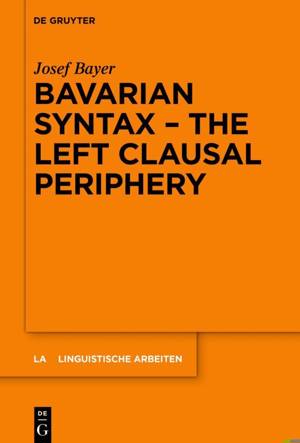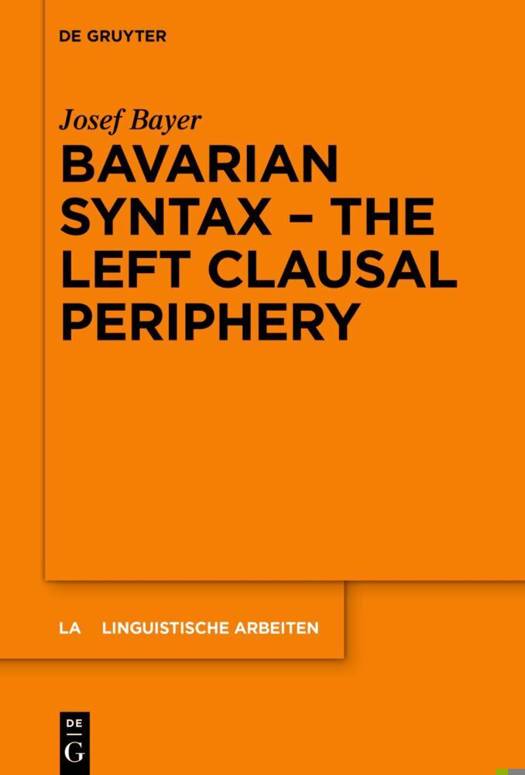
- Retrait gratuit dans votre magasin Club
- 7.000.000 titres dans notre catalogue
- Payer en toute sécurité
- Toujours un magasin près de chez vous
- Retrait gratuit dans votre magasin Club
- 7.000.0000 titres dans notre catalogue
- Payer en toute sécurité
- Toujours un magasin près de chez vous
Description
Bavarian syntax is widely known for its productive "Doubly-Filled COMP" (DFC) property and for the rare phenomenon of inflecting complementizers. It is less widely known that DFC also extends to declaratives. Topicalization out of a preposed CP can leave a gap, with various consequences. DFC is in addition not available as unconditionally as previously thought. Short wh-words seem to blur the traditional division between heads (C) and phrases (wh-XP). As for the inner clausal syntax, Bavarian shows hierarchically organized discourse particles among which the clitic version 'n of the particle denn plays a distinct role. Various tests as well as empirical investigations suggests that 'n has lost its semantic residues and has turned into a wh-agreement marker.
The studies presented in this book are relevant for anyone interested in German morpho-syntax and in syntactic theory, linguistic micro-variation, comparative Germanic and historical linguistics. It touches on various questions concerning the licensing of empty categories, the clausal architecture, word order and the consequences of grammaticalization for the synchronic appearance of the language. As such, the book is relevant for students and researchers of syntactic theory, variation, German(ic) syntax, German(ic) dialectology, comparative linguistics and the development of language.
Spécifications
Parties prenantes
- Auteur(s) :
- Editeur:
Contenu
- Nombre de pages :
- 258
- Langue:
- Anglais
- Collection :
- Tome:
- n° 589
Caractéristiques
- EAN:
- 9783111407791
- Date de parution :
- 19-05-25
- Format:
- Livre relié
- Format numérique:
- Genaaid
- Dimensions :
- 156 mm x 234 mm
- Poids :
- 539 g

Les avis
Nous publions uniquement les avis qui respectent les conditions requises. Consultez nos conditions pour les avis.






